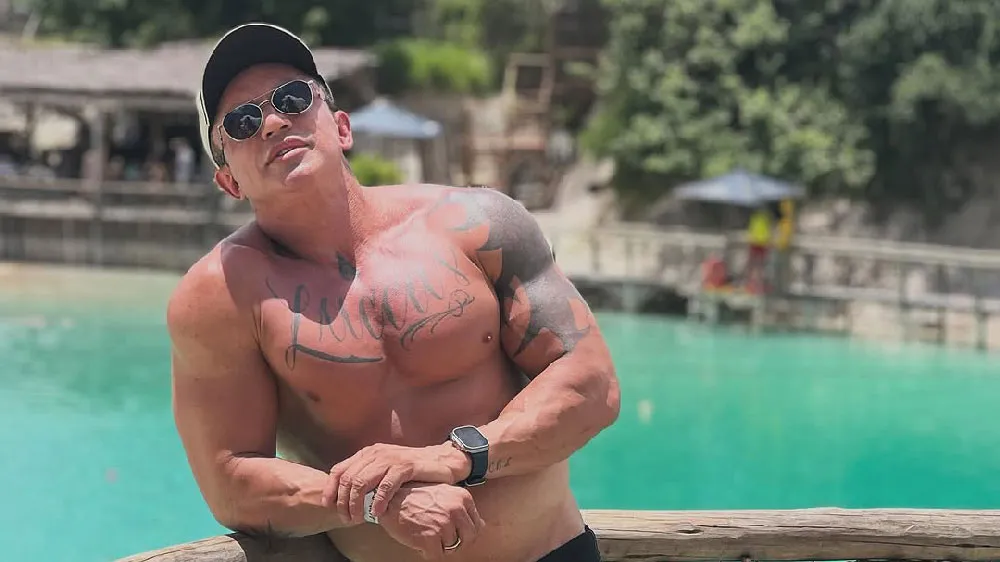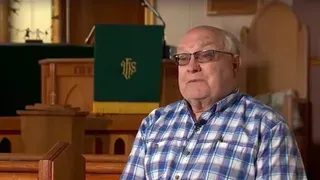July 30, 2013
The Glass Closet: LGBT College Athletes Stifled, Silenced
Antoinette Weil READ TIME: 6 MIN.
"I've gotten tired of waiting for another pro athlete to come out," Brian Kitts told EDGE.
The co-founder of the You Can Play Project and adjunct professor of sports marketing for the University of Denver wasn't bashing the celebrity status of now household names Jason Collins or Brittney Griner. What Kitts is speaking to, is the seemingly unquestioned practice of athletes, who wait to come out after they're signed in professional leagues.
"I'm waiting for the day when there is an athlete who is out and proud and playing sports and then makes it to the pro's," said Kitts.
There is no denying that history was made last May when NBA player Collins declared publicly that he is gay. He was not the first athlete to come out, but he was the first male athlete in a major American sport to take the leap. This monumental step and the media hype that followed, might give the impression that the sports world is finally there with the rest of us in terms of LGBT acceptance and equality.
There has been some disconcerting evidence to the contrary, however. While professional athletes may be embracing diversity, it seems that, at the college level, LGBT athletes feel stifled, if not silenced. According to the 2012 LGBTQ National College Athlete Report by Campus Pride, one in four LGBT athletes feels pressure to remain silent about his or her identity.
"A lot of athletes feel they can't come out," said Kye Allums, former George Washington University basketball player, and Go! Athletes Director. "There are teams where coaches say 'I don't want to know about it'."
Allums is speaking from experience. During his time at GWU he became the first ever openly transgender Division I athlete. Allums says that, while he was open with and accepted by his teammates and coach, he received some flack when he made the decision to go public with his story.
"People said not to do it, that I could somehow make the school look bad," said Allums. "But I felt like all students have the right to tell their stories, and I wanted to be heard."
Even Brittney Griner, the record-breaking, award winning lady-hoop superstar, arguably the best in the game, was not immune to these pressures. Griner has been winning over more and more fans with her candid interviews, openness and honesty about who she is, sexual orientation included. But this openness was not always so well received.
Griner has spoken out recently about her time at Baylor University, a Baptist college in Waco, Texas, and being pressured by Coach Kim Mulkey and administrators to remain closed-lipped about her sexuality. While it was known she was a lesbian (she even brought girlfriends to team functions), Griner was advised not to talk about it openly. According to her, there was some idea that having gay players would hurt the school's recruiting process.
"The coaches thought if it seemed like they condoned it, people wouldn't let their kids play for Baylor," Griner told ESPN.
"Unfortunately it is a reality," said Anna Aagenes, executive director of GO! Athletes. "I'm glad she said something about that because it happens."
Avery Stone, a senior and women's ice hockey player for Amherst College and a student leader for both GO! Athletes and the You Can Play Project, confirms that this is true for many athletes but that it tends to be Division I teams that are most concerned.
"Coming from the perspective of a Division III school, I never experienced that," Stone said. "But it has been talked about in Division I, not wanting to be known for having a 'gay team.'"
Revelations like this, paired with shocking incidents like the videos that surfaced of former Rutger's Coach Mike Rice hurling basketballs and homophobic slurs at students, paint a telling picture that, for some teams, being gay is not okay.
Does this practice of stifling student-athletes' identities really help with recruiting processes? Do parents really consider the sexual orientation of their child's peers and teammates when choosing a school?
"We're still gonna have parents that think that way," said Allums. "Everyone has their own opinion. But we will get to that tipping point where parents want to send their kids to LGBTQ accepting places."
Brian Kitts agrees, predicting backlash against the "flagrant homophobia" exhibited by some coaches and administrators. He calls examples like Griner's story relics of the Don't Ask Don't Tell era.
"What we're going to start to see is real shame aimed at coaches and administrations that are exclusive," said Kitts.
Aagenes, who works with GO! Athletes to foster support and education for LGBTQ athletes, agrees that this silencing happens, but is careful to note that many coaches and administrators really care and want to make life better for LGBTQ students. She says it is not just coaches, school administrators or overt hostility that keeps student athletes closeted, but a more subtle underlying pressure on these student-athletes.
"The team is your family," said Aagenes. "During those four years, you see your teammates more than your family. To speak out in any way against it or against the administration makes your environment different."
This is why, she says, it is common for student-athletes to wait until after graduation to come out. LGBTQ athletes, like LGBTQ students and LGBTQ people in general, often feel alone, that they are not like everybody else, but there seems to be great hope, with more and more professional athletes coming out, that those at the collegiate level will also be able to be true to themselves and open with others.
GO! Athletes is hoping to catalyze this change and eliminate LGBTQ-phobia in sports by working with coaches, staff, and team leaders to promote inclusive practices and by connecting LGBTQ student-athletes with resources and other students like them.
The You Can Play Project, which was started as a way to battle homophobia in sports, is taking on this issue of silenced student/athletes with a series of videos featuring professional and collegiate athletes, coaches, and administrators giving the message that, regardless of your sexual orientation or gender identity/expression, "If you can play, you can play."
Through this widely successful outreach, the organization works to promote safety and fairness on and off the field and to ensure that all athletes be judged on their athletic abilities and not on their personal identities.
For Griner, whose abilities are unquestionable and whose personal identity seems to be resonating with audiences far and wide, these worries are a thing of the past. The winner, by all accounts, seems content to be herself, let the haters hate, and focus on her game.
To learn more about GO! Athletes visit www.goathletes.org
To learn more about the You Can Play Project or to see their videos visit www.youcanplayproject.org




